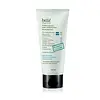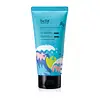What's inside
What's inside
 Key Ingredients
Key Ingredients

 Benefits
Benefits

 Concerns
Concerns

 Ingredients Side-by-side
Ingredients Side-by-side

Myristic Acid
CleansingWater
Skin ConditioningGlycerin
HumectantDipropylene Glycol
HumectantStearic Acid
CleansingPotassium Hydroxide
BufferingGlycol Distearate
EmollientGlyceryl Stearate
EmollientCocamidopropyl Betaine
CleansingPEG-100 Stearate
Sodium Methyl Cocoyl Taurate
CleansingHydrogenated Polydecene
EmollientPEG-40 Hydrogenated Castor Oil
EmulsifyingMelaleuca Alternifolia Leaf Oil
AntioxidantCalendula Officinalis Flower Extract
MaskingNepeta Cataria Extract
TonicAvena Sativa Kernel Extract
AbrasiveRubus Idaeus Leaf Extract
Skin ConditioningStellaria Media Extract
Skin ConditioningBaptisia Tinctoria Root Extract
Skin ConditioningArctium Lappa Root Extract
Skin ConditioningLavandula Angustifolia Flower Extract
CleansingRosmarinus Officinalis Leaf Extract
AntimicrobialEchinacea Angustifolia Extract
MoisturisingSalix Alba Bark Extract
AstringentDextrin
AbsorbentTocopheryl Acetate
Antioxidant1,2-Hexanediol
Skin ConditioningTrisodium EDTA
Citrus Aurantium Bergamia Fruit Oil
MaskingEucalyptus Globulus Leaf Oil
PerfumingRosmarinus Officinalis Leaf Oil
MaskingParfum
MaskingCitral
PerfumingCitronellol
PerfumingLimonene
PerfumingGeraniol
PerfumingLinalool
PerfumingMyristic Acid, Water, Glycerin, Dipropylene Glycol, Stearic Acid, Potassium Hydroxide, Glycol Distearate, Glyceryl Stearate, Cocamidopropyl Betaine, PEG-100 Stearate, Sodium Methyl Cocoyl Taurate, Hydrogenated Polydecene, PEG-40 Hydrogenated Castor Oil, Melaleuca Alternifolia Leaf Oil, Calendula Officinalis Flower Extract, Nepeta Cataria Extract, Avena Sativa Kernel Extract, Rubus Idaeus Leaf Extract, Stellaria Media Extract, Baptisia Tinctoria Root Extract, Arctium Lappa Root Extract, Lavandula Angustifolia Flower Extract, Rosmarinus Officinalis Leaf Extract, Echinacea Angustifolia Extract, Salix Alba Bark Extract, Dextrin, Tocopheryl Acetate, 1,2-Hexanediol, Trisodium EDTA, Citrus Aurantium Bergamia Fruit Oil, Eucalyptus Globulus Leaf Oil, Rosmarinus Officinalis Leaf Oil, Parfum, Citral, Citronellol, Limonene, Geraniol, Linalool
Water
Skin ConditioningGlycerin
HumectantPotassium Cocoyl Glycinate
Coco-Betaine
Cleansing1,2-Hexanediol
Skin ConditioningPotassium Cocoate
EmulsifyingLauramidopropyl Betaine
CleansingAcrylates/C10-30 Alkyl Acrylate Crosspolymer
Emulsion StabilisingStellaria Media Extract
Skin ConditioningAlchemilla Vulgaris Leaf Extract
AntioxidantEquisetum Arvense Leaf Extract
AstringentUrtica Dioica Leaf Extract
Skin ConditioningAvena Sativa Kernel Extract
AbrasiveCalendula Officinalis Flower Extract
MaskingNepeta Cataria Extract
TonicRubus Idaeus Leaf Extract
Skin ConditioningBaptisia Tinctoria Root Extract
Skin ConditioningPotassium Hydroxide
BufferingSodium Chloride
MaskingEthylhexylglycerin
Skin ConditioningGlyceryl Oleate
EmollientCoco-Glucoside
CleansingButylene Glycol
HumectantTetrasodium EDTA
Malachite Extract
AntioxidantCitric Acid
BufferingCitrus Aurantium Dulcis Peel Oil
MaskingCitrus Aurantifolia Oil
CleansingPelargonium Graveolens Flower Oil
MaskingRosmarinus Officinalis Leaf Oil
MaskingLimonene
PerfumingCitronellol
PerfumingGeraniol
PerfumingCitral
PerfumingWater, Glycerin, Potassium Cocoyl Glycinate, Coco-Betaine, 1,2-Hexanediol, Potassium Cocoate, Lauramidopropyl Betaine, Acrylates/C10-30 Alkyl Acrylate Crosspolymer, Stellaria Media Extract, Alchemilla Vulgaris Leaf Extract, Equisetum Arvense Leaf Extract, Urtica Dioica Leaf Extract, Avena Sativa Kernel Extract, Calendula Officinalis Flower Extract, Nepeta Cataria Extract, Rubus Idaeus Leaf Extract, Baptisia Tinctoria Root Extract, Potassium Hydroxide, Sodium Chloride, Ethylhexylglycerin, Glyceryl Oleate, Coco-Glucoside, Butylene Glycol, Tetrasodium EDTA, Malachite Extract, Citric Acid, Citrus Aurantium Dulcis Peel Oil, Citrus Aurantifolia Oil, Pelargonium Graveolens Flower Oil, Rosmarinus Officinalis Leaf Oil, Limonene, Citronellol, Geraniol, Citral
 Reviews
Reviews

Ingredients Explained
These ingredients are found in both products.
Ingredients higher up in an ingredient list are typically present in a larger amount.
1,2-Hexanediol is a synthetic liquid and another multi-functional powerhouse.
It is a:
- Humectant, drawing moisture into the skin
- Emollient, helping to soften skin
- Solvent, dispersing and stabilizing formulas
- Preservative booster, enhancing the antimicrobial activity of other preservatives
Avena Sativa Kernel Extract is is derived from colloidal oatmeal. Besides being a healthy breakfast, oats have many benefits in skincare too.
This ingredient helps sooth, hydrate, and protect the skin. The starches in colloidal oatmeal are able to bind water, keeping the skin hydrated.
The cellulose and fiber in colloidal oatmeal help reduce inflammation. This can also help the skin feel softer.
Colloidal Oatmeal is also an antioxidant. Antioxidants protect our skin from free-radical damage.
Oatmeal also contains beneficial compounds:
This ingredient is created by mixing grounded oatmeal and a liquid base.
Learn more about Avena Sativa Kernel ExtractWe don't have a description for Baptisia Tinctoria Root Extract yet.
Calendula Officinalis Flower Extract comes from the common Marigold plant. This ingredient is a skin conditioner.
Marigolds contain flavonoids. Flavonoids are a group of substances found naturally in plants. They possess antioxidant and inflammation properties.
This ingredient soothes skin inflammation by inhibiting inhibiting a part of the inflammation process.
Marigolds have been used in traditional medicine throughout Asia and Europe.
Learn more about Calendula Officinalis Flower ExtractCitral is a fragrance and used to add a lemon-like scent to products. It is both naturally found in plants and created synthetically. In plants, it is commonly occurring in lemon myrtle, lemongrass, lemon tea-tree, lemon verbena, and other citruses.
The EU mandates Citral be listed separately as a fragrance. It is a known allergen and may cause contact dermatitis. Citral can also used as a masking ingredient.
The term 'fragrance' is not regulated in many countries. In many cases, it is up to the brand to define this term. For instance, many brands choose to label themselves as "fragrance-free" because they are not using synthetic fragrances. However, their products may still contain ingredients such as essential oils that are considered a fragrance.
The term 'citral' is a collective term for two geometric isomers: geranial/Citral A and neral/Citral B.
Learn more about CitralCitronellol is used to add fragrance/parfum to a product. It is often derived from plants such as roses. In fact, it can be found in many essential oils including geranium, lavender, neroli, and more. The scent of Citronellol is often described as "fresh, grassy, and citrus-like".
Since the Citronellol molecule is already unstable, Citronellol becomes irritating on the skin when exposed to air.
Citronellol is a modified terpene. Terpenes are unsaturated hydrocarbons found in plants. They make up the primary part of essential oils.
Citronellol is not able to be absorbed into deeper layers of the skin. It has low permeability,
Citronellol is also a natural insect repellent.
Learn more about CitronellolGeraniol is used to add fragrance/parfum to a product. It is the main component of citronellol. It is a monoterpenoid and an alcohol.
Monoterpenes are naturally found in many parts of different plants.
Geraniol can be found in many essential oils including Rose Oil and Citronella Oil. The scent of Geraniol is often described as "rose-like". Many foods also contain Geraniol for fruit flavoring.
Geraniol can irritate the skin when exposed to air. However, irritation depends on the ability of geraniol to penetrate into the skin. In general, geraniol is not able to penetrate skin easily.
Geraniol is colorless and has low water-solubility. However, it is soluble in common organic solvents.
Like citronellol, it is a natural insect repellent.
2,6-Octadien-1-ol, 3,7-dimethyl-, (2E)-
Learn more about GeraniolGlycerin is already naturally found in your skin. It helps moisturize and protect your skin.
A study from 2016 found glycerin to be more effective as a humectant than AHAs and hyaluronic acid.
As a humectant, it helps the skin stay hydrated by pulling moisture to your skin. The low molecular weight of glycerin allows it to pull moisture into the deeper layers of your skin.
Hydrated skin improves your skin barrier; Your skin barrier helps protect against irritants and bacteria.
Glycerin has also been found to have antimicrobial and antiviral properties. Due to these properties, glycerin is often used in wound and burn treatments.
In cosmetics, glycerin is usually derived from plants such as soybean or palm. However, it can also be sourced from animals, such as tallow or animal fat.
This ingredient is organic, colorless, odorless, and non-toxic.
Glycerin is the name for this ingredient in American English. British English uses Glycerol/Glycerine.
Learn more about GlycerinLimonene is a fragrance that adds scent and taste to a formulation.
It's found in the peel oil of citrus fruits and other plants such as lavender and eucalyptus. The scent of limonene is generally described as "sweet citrus".
Limonene acts as an antioxidant, meaning it helps neutralize free radicals.
When exposed to air, oxidized limonene may sensitize the skin. Because of this, limonene is often avoided by people with sensitive skin.
The term 'fragrance' is not regulated in many countries. In many cases, it is up to the brand to define this term. For instance, many brands choose to label themselves as "fragrance-free" because they are not using synthetic fragrances. However, their products may still contain ingredients such as essential oils that are considered a fragrance.
Learn more about LimoneneCatnip has antioxidant and antimicrobial properties.
Fun fact: This plant is called "cataria" or "catnip" because 2/3 of all cats are attracted to this plant.
Potassium hydroxide is commonly known as caustic potash. It is used to fix the pH of a product or as a cleaning agent in soap. In cleansers, it is used for the saponification of oils.
Sapnification is the process of creating fatty acid metal salts from triglycerides and a strong base. During this process, Potassium Hydroxide is used up and is not present in the final product.
Using high concentrations of Potassium Hydroxide have shown to irritate the skin.
Learn more about Potassium HydroxideRosmarinus Officinalis Leaf Oil is oil expressed from the leaves of the rosemary plant.
Rosemary Leaf Oil is a fragrance and helps give your product a scent. If you are sensitive to irritating fragrances, this one contains camphor. Camphor has been found to irritate skin.
This oil also contains antioxidant and antimicrobial properties. As an antioxidant, it may protect you skin against damage. This can help slow down the signs of aging.
Learn more about Rosmarinus Officinalis Leaf OilWe don't have a description for Rubus Idaeus Leaf Extract yet.
We don't have a description for Stellaria Media Extract yet.
Water. It's the most common cosmetic ingredient of all. You'll usually see it at the top of ingredient lists, meaning that it makes up the largest part of the product.
So why is it so popular? Water most often acts as a solvent - this means that it helps dissolve other ingredients into the formulation.
You'll also recognize water as that liquid we all need to stay alive. If you see this, drink a glass of water. Stay hydrated!
Learn more about Water